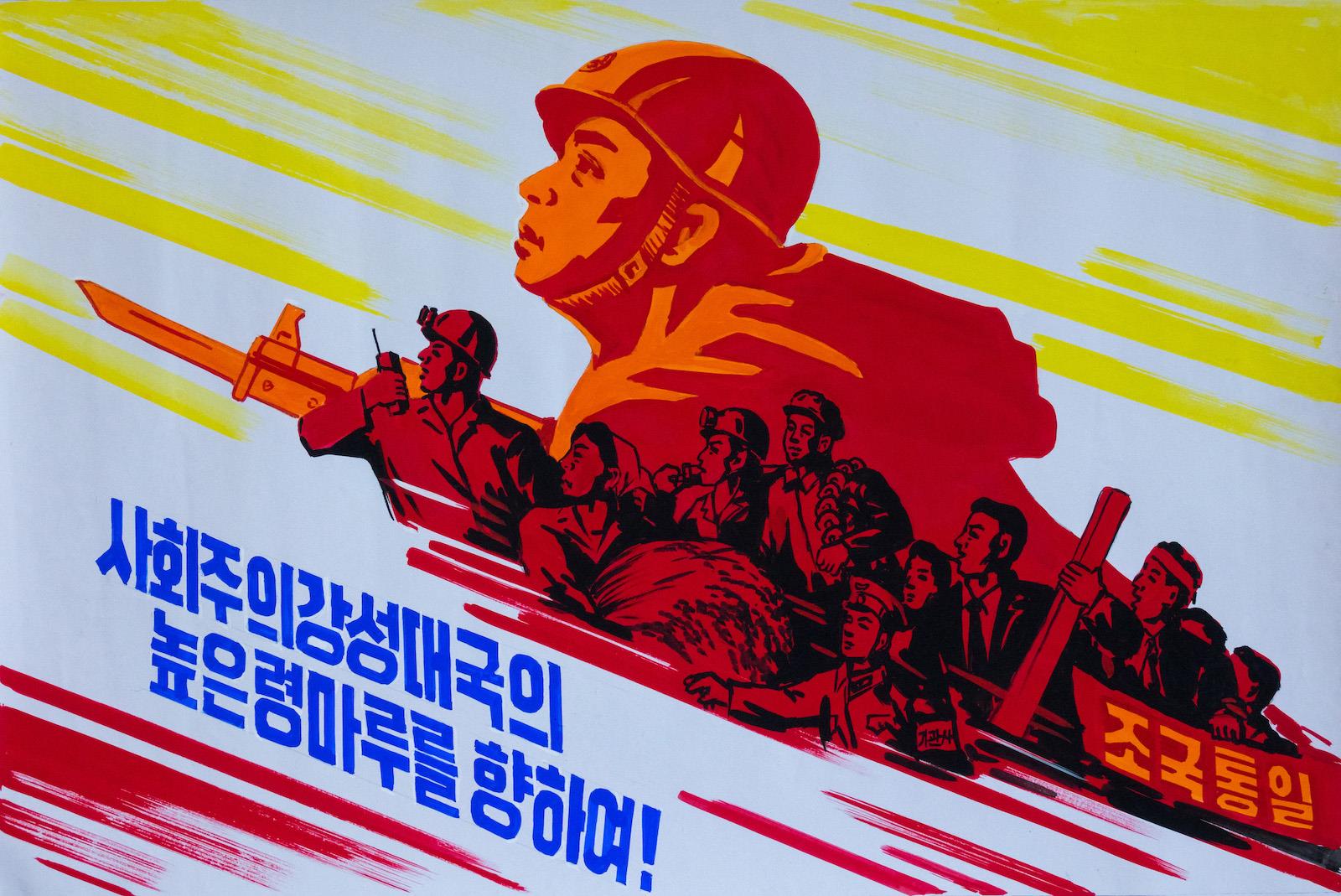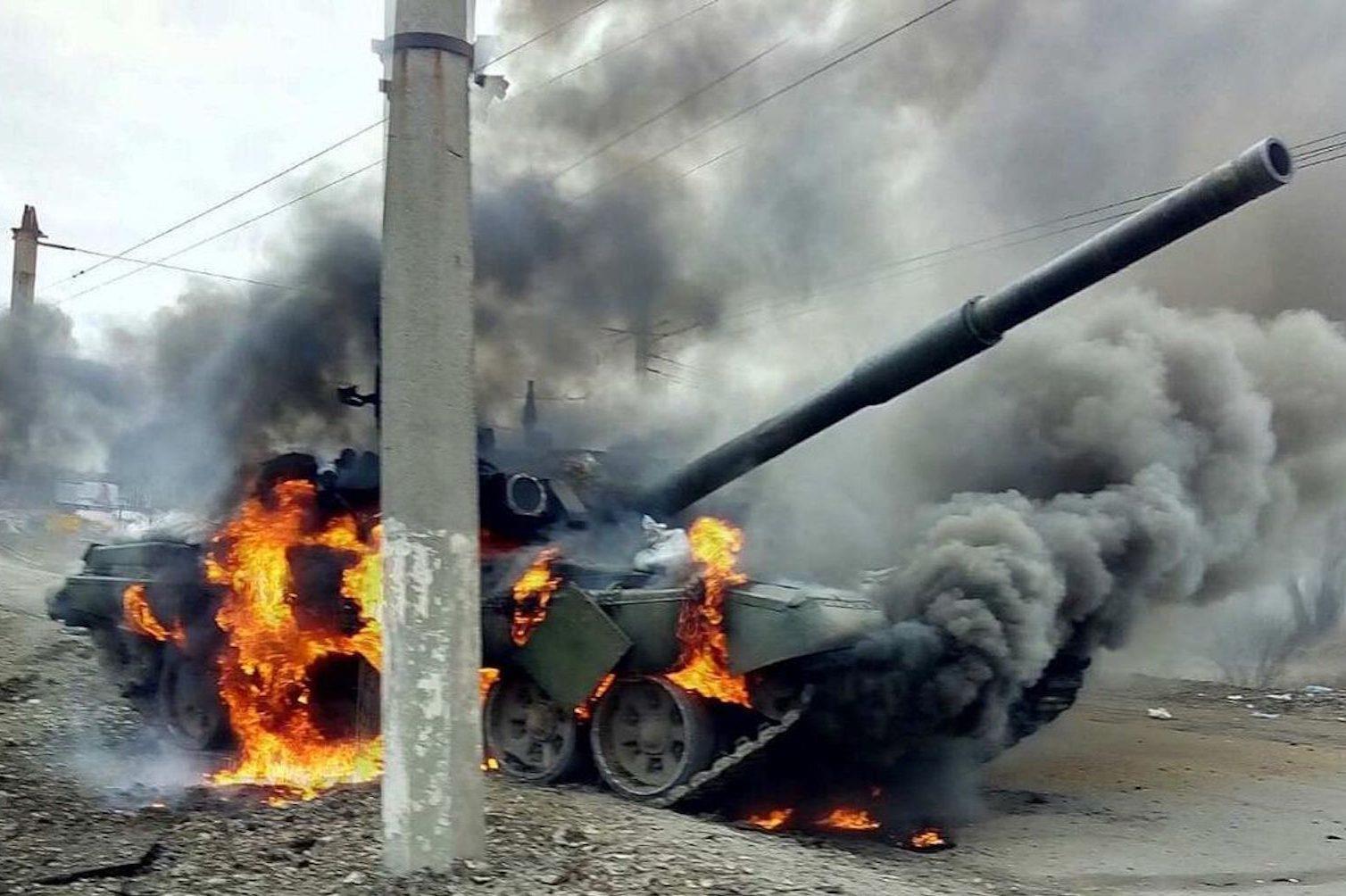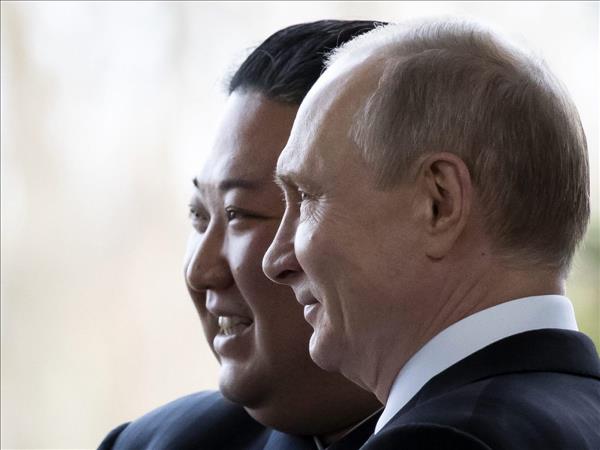
Did Russian Pride Nix North Korea Arms Deal?
SEOUL – North Korea has indignantly refuted a widely-reported US intelligence analysis alleging that it is engaged in supplying Russia with artillery ammunition.
“We have never exported weapons or ammunition to Russia before and we will not plan to export them,” an unnamed vice director general within Pyongyang's General Bureau of Equipment said via the Korean Central News Agency, as monitored in Seoul yesterday.
“We condemn the US for thoughtlessly circulating the rumor against [North Korea] to pursue its base political and military aim,” the unnamed source in the statement said.
Still, there is no question that isolated North Korea has used the Ukraine war to edge closer to Russia. And since unleashing its invasion in February, Russia is experiencing the kind of international isolation and widespread condemnation of which North Korea is very, very familiar.
These factors argue for the veracity of the US report – though, of course, it is possible the US analysis was plain wrong. It is also possible that Pyongyang's response is disinformation.
However, there is a third possibility: Despite its dire situation in Ukraine, Russia felt compelled to withdraw from the deal once it was uncovered and revealed by US intelligence.
Expanding ties vs Russian prideSince the war erupted in February, Pyongyang has supported Russia with media statements and in global fora, notably by recognizing the breakaway republics in Donbas in July – the third nation to do so after Russia and Syria.
It also used joint Chinese-Russian air drills in Northeast Asia as cover to test-launch ballistic missiles in both March and May , raising the possibility that trilateral cooperation may, feasibly, be underway.
Russian officials have hinted at importing North Korean laborers to help rebuild the Donbas republics – and military pundits have even suggested they could join the fight on the frontlines.
The latter seems highly unlikely, though, given North Korea's minimal recent experience in expeditionary combat and its army's near total lack of interoperability training with external forces in recent years.
Yet North Korea has won some payback for its support for Russia's“special military operation.”

North Korean rockets may or may not have been headed for Russia. Photo: iStock
In May, Moscow, together with Beijing, vetoed a US draft resolution to add further sanctions on North Korea at the UN Security Council for its heavy program of missile testing – cracking prior unity in the UNSC.
And as North Korea is chronically undersupplied with energy, a barter trade of arms and ammunition for oil or gas from the Russian Far East would make sense for both sides.
These factors underpin the US intelligence analysis from earlier this month, which has been widely covered by global media , with a US State Department claim that Moscow was in the process of buying“millions of rockets and artillery shells” from Pyongyang.
So were the Americans wrong? Or is North Korea spreading disinformation?
One analyst told Asia Times that he reckons a trade was, in fact, in place – but Russia was compelled to back out.
“What happened in my view is that Russia got cold feet,” said Go Myong-hyun, an analyst with the Seoul-based think tank the Asan Institute.“I think Russia wanted to conduct this trade secretly and the reason is obvious: The sanctions that prevent North Korea from selling arms to any other country in the world were agreed to by Russia.”
Moscow enjoys global permanent membership of the UN Security Council – a position that many anti-Russia voices are now questioning amid the Ukraine War.
“I think Russia takes its position on the UNSC seriously and does not want to give the impression that it is undermining it,” Go continued.“That would strengthen the voices demanding Russia's expulsion from it, so when it was revealed that the US learned about it, it compelled Russia to rescind the trade.”
Another negative for Moscow would be, in Go's words,“bad optics” for its own public: That mighty Russia is turning for help to decrepit North Korea.
“North Korea has had a very bad reputation inside Russia – it is seen as a crazy Oriental dictatorship – for decades,” Andrei Lankov, a Russian-born North Korean expert who teaches at Seoul's Kookmin University told Asia Times in August.“It is a kind of symbol of everything which can go wrong about a country.”
Conversely, any sale to Russia would, for the same reason, elevate North Korea's stature.
“The sale would strengthen North Korea's position as a client state that is not at the mercy of China or Russia – Russia would become a peer,” Go said. “And [North Korean leader] Kim Jong Un has been pushing for the idea that North Korea, China and Russia should work together and it wants to be part of this emergent bloc of authoritarian Eurasian states.”
Go added,“If this trade had happened, it would have strengthened the case for North Korea being part of a bloc with China and Russia.”
The statement by the North Korean quartermaster branch does hold some possibility of a u-turn.
“Not only the development, production, possession of military equipment, but also their export and import are the lawful right peculiar to a sovereign state,” the KCNA report read.“We have never recognized the UN Security Council unlawful 'sanctions resolution' against the DPRK, which was cooked up by the US and its vassal forces.”

A North Korean propaganda poster. The country is using the Ukraine war to try and edge closer to an embattled Russia. Photo: AFP / Eric Lafforgue / Hans Lucas Isolated and under-manned
Regardless of Pyongyang's stance, all indications are that Russia is in dire need of any help it can get.
Traditionally close Russian ally Belarus has declined to join the hostilities, Kakazhstan has spoken up against the invasion and Uzbekistan has ordered its citizens not to volunteer for the war. Early rumors that Syrian and African volunteers might join the fight were misplaced.
Moreover, no proof has emerged that Russia's economically powerful senior partner China is dispatching weaponry to Moscow. Thus far, the only evidence of third-party military aid – in the form of reported Ukrainian shootdowns – is of Iranian drones.
Meanwhile, the situation facing Moscow's high command on maps and manpower tables is dire. In what has been an up-and-down war, Russia's fortunes in Ukraine are currently at their lowest ebb.
Russian troops have, it is true, bounced back from previous defeats. In the first phase of the war, unable to besiege Kiev, Russian troops were forced to retreat from the north. In the south, the Russian Navy was pushed back from Ukraine's littoral.
Yet Russia still won a grim, hard-fought battle for Mariupol in the south and conducted a slow, but largely successful offensive in the Donbas in the east. Now, though, its degraded forces appear to have surrendered the operational initiative across Ukraine.
They have been terribly mauled. Official figures made public this week, of almost 6,000 dead, suggest, given modern dead-wounded ratios that its total casualties are, at a minimum, 66,000. That is crippling for a force of around 200,000 strong.
And they are on the back foot. Russia has lost thousands of square kilometers, strategic cities and vital supply lines to a surprise Ukrainian counteroffensive in the northeast, close to the Russian border and Luhansk. It is holding firm, but on the defensive, around Kherson in the south.
Seven months after Kiev astutely ordered a general mobilization, Moscow this week finally ordered a partial mobilization. That is a long-overdue acknowledgment that its vaunted professional military is under-strength.
Now, ammunition to feed Russia's ravenous artillery is particularly vital.
Russia's expedition was weak in infantry from the start and poor tactical deployments saw its once-feared armored arm decimated. It has since failed to conduct any of the deep-penetration maneuver operations Russia's forces are famed for.
Finally, the Russia Air Force's close-air support arm has proven to be a surprise under-performer.
In the face of these setbacks, Russia has turned to its traditionally powerful artillery arm to lead the battle. That proved formidable in Mariupol and Donbas, but now even this superiority is eroded.
While Russia retains massed, frontline,“dumb” artillery, Ukraine is using smaller stocks of long-range, networked“smart” artillery and rocket systems to take out enemy ammo dumps.
This would explain why Russia needs ammunition for its big guns and rocket launchers – and why North Korea could assist.

A burning Russian tank is emblematic of the problems Moscow is facing in its war in Ukraine, where its undermanned forces have lost the initiative. Photo: war.ukraine.ua Korea supply, Eurasian routes, Western impotence
North Korea is armed with Warsaw Pact heritage equipment. Granted, the country's creative arms industry has tweaked and upgraded this kit, adding range to tube artillery and building a formidable tactical and strategic missile force from older designs.
But most of its massed artillery uses the same calibers and propellants as Russia's armed forces. Interoperable systems include Grad rocket launchers, 152mm howitzers, 122mm howitzers and 120mm mortars, a German report notes.
Pundits have questioned the maintenance and stability of North Korea's ammo stockpile given that some three-quarters of the projectiles fired during a brief but intense artillery duel on Yeonpyeong Island in 2010 failed to hit their target.
Still, it seems likely that the highly militarized nation maintains a vast supply of usable munitions. If North Korea did supply Russia, Western intelligence could – very feasibly – identify it. But short of unlikely covert action, the West would be powerless to prevent its shipment.
Politically, both Moscow and Pyongyang are well-practiced at sanctions resistance. Geographically, direct cross-border rail lines link northeastern North Korea to the Russian Far East. From there, lines run onto the Trans-Siberian Express, from which supplies can be conveyed to European Russia and into the battlespace.
This trans-Eurasia land route invalidates the Proliferation Security Initiative (PSI) – a low-profile, US-led multinational naval force that monitors and sometimes interdicts North Korean shipping on the high seas.
Currently in Russia, the nascent call-up of 300,000 reservists – who are likely unfit, of questionable motivation and certainly unformed into units – looks like a desperate ploy given how roughly Russia's professional warriors have been handled in Ukraine.
All these factors argue for a potential resurrection of the North Korean arms deal, if Russia's emergency attempt to regain battlefield traction fails. It would provide a lifeline for Russia, a win for North Korea and would showcase Western impotence.
“There is nothing that could prevent it,” Go, the Seoul-based analyst said.“And for North Korea, it would become a source of prestige.”
Follow this writer on Twitter @ASalmonSeoul

Legal Disclaimer:
MENAFN provides the
information “as is” without warranty of any kind. We do not accept
any responsibility or liability for the accuracy, content, images,
videos, licenses, completeness, legality, or reliability of the information
contained in this article. If you have any complaints or copyright
issues related to this article, kindly contact the provider above.

















Comments
No comment